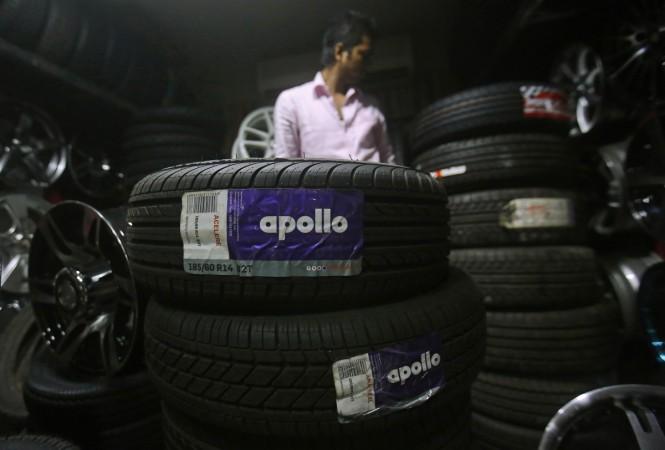
Apollo Tyres, which recently signed a three-year, global sponsorship agreement with Manchester United Football Club, is placed well to gain in both value and volume terms, in the European Union (EU) and India, respectively. The share price of the Onkar Kanwar-owned company rose to a 52-week high of Rs. 215.90 on Friday, before closing at Rs. 212.85, up 2.53 percent.
Apollo Tyres will be the official global tyre partner for the club with which the Indian tyre maker has a regional association since August 2013.
The company sells its products under its two global brands — Apollo and Vredestein — in more than 100 countries through its network of exclusive and multi-product outlets.
The company's Hungary plant, being set up at a cost of about €475 million will add to its presence in the high-margin EU market, especially in the original equipment manufacturer (OEM) segment. It already has a manufacturing facility in The Netherlands.
"Apollo currently has a capacity of 7m tyres in its Netherlands facility, which is close to being fully utilised. It plans to add another 6m capacity in a new facility in Hungary over the next three to four years. We believe this should help drive higher volume growth for the company," Deutsche Bank analysts Amyn Pirani and Srinivas Rao said in a note.
The company is poised to benefit from high-value-added (HVA) tyre sales in Europe where the margins are high. "Around 30 percent of Apollo's EU revenues are derived from HVA winter tyres. Our global team forecasts HVA tyres to post a CAGR (2015-22E) of 10 percent vs market growth of 1.5-2 percent. Moreover, Apollo's new plant in a lower-cost location (Hungary) should increase its capacity from 7 million to 13 million by FY20E," they added.
In their view, the domestic tyre industry, reeling under cheap truck tyre imports from China, need not be alarmed by the trend. "Chinese dumping is a risk but is already reflected in demand and pricing. Truck tyre imports grew 60 percent p.a. (FY14-16) and now form 11 percent of replacement demand. The share could increase to 23 percent (similar to cars) in three years. If demand grows 10 percent, it still leaves room for domestic players to grow 7 percent," Amyn Pirani and Srinivas Rao said.
For the quarter ended June 30, 2016, Apollo Tyres reported 10.6 percent rise in net profit to Rs. 314.69 crore from Rs. 284.4 crore in the corresponding period last year. Total income increased to Rs. 3,304 crore from Rs. 2,852 crore.
Ceat shares closed 0.39 percent higher at Rs. 1,034.65 apiece while MRF rose 0.29 percent to end at Rs. 40,158.40.

















